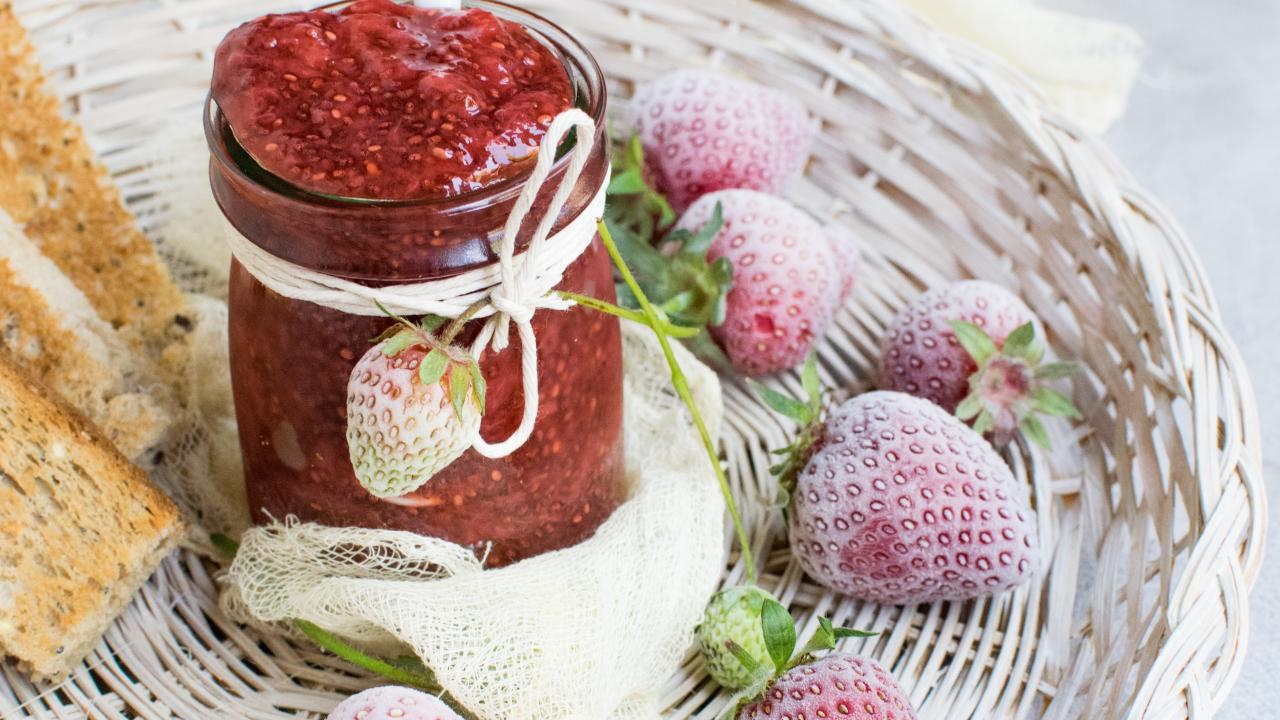
Summer - Fresh, Canned, or Frozen?
Quick Summary
- Canned and frozen food is an easy, affordable way to include more fruits and vegetables into your diet!
Don’t underestimate canned and frozen fruits and vegetables! Canned food is an easy, affordable way to include more fruits and vegetables into your diet. Fruits and vegetables that are used for canning are usually picked at peak freshness. The canning process ensures a long shelf life, but once a can has been opened, all its contents should be consumed within 5 – 7 days. Canned vegetables are also already cooked and only need to be heated up before serving. With options that are not already flavored, you can add your own seasoning and they can be incorporated into many different dishes. Canned fruits also can be quickly drained and enjoyed anyway you like.
In terms of nutritional content, the amount of minerals and fat-soluble vitamins are relatively unchanged by canning. However, since canning usually requires heat processing, some products may contain less water-soluble vitamins, like vitamin C and B vitamins. To avoid added sugars, make sure to choose products that are packaged in water or natural juices and not in heavy or light syrups. To limit high sodium intake, look for canned foods that say, “no added sodium” or “low sodium.”
Frozen fruits and vegetables are also picked and frozen at optimal ripeness. They can sit in the freezer for longer than fresh produce can sit in the fridge, they don’t have to be consumed all at once, and they can be used for a wider range of purposes than canned foods since their natural texture and flavor are often preserved. Frozen vegetables are usually washed, pre-cut and ready to be heated up and added into any dish for an extra nutritious kick. Frozen fruits can be easily popped into yogurt, a quick smoothie, or even just to have as a cool snack during a hot day.
In some cases, freezing can preserve vitamins and minerals that would have been otherwise lost over time in fresh foods. These fruits and vegetables are not suspended in syrups or solutions with added sugar or sodium, but many frozen produce products include substantial amounts of ascorbic acid, or better known as vitamin C, to prevent spoilage.
Overall, canned and frozen food can conveniently make every meal more nutrient dense without too much extra effort or money. In other words: it’s easy on your wallet, good for your body, and can keep up with your busy schedule!
Seasonal Foods and Recipes
Slow Cooker Chili Con Carne
Need to feed a crowd? Make a big batch of this chili. It is sure to be a crowd favorite!
Penne with Veggies and Black Beans
This penne is a light and summery pasta dish that is great to share.
Esquites with Frozen or Canned Corn
Make this Mexican street food dish as side to a main course of have it as a simple snack!
Japanese Spicy Tuna Bowl
If you’re looking for a kick of spice, you’ve got to try this budget-friendly spicy tuna bowl!
Chicken, Mushroom and Sweetcorn Ramen
Looking for a more nutritious alternative to instant noodles? This ramen has your back!
Skillet Ravioli Lasagna
This pasta dish is fun, simple, and kid-friendly, perfect for dinner!